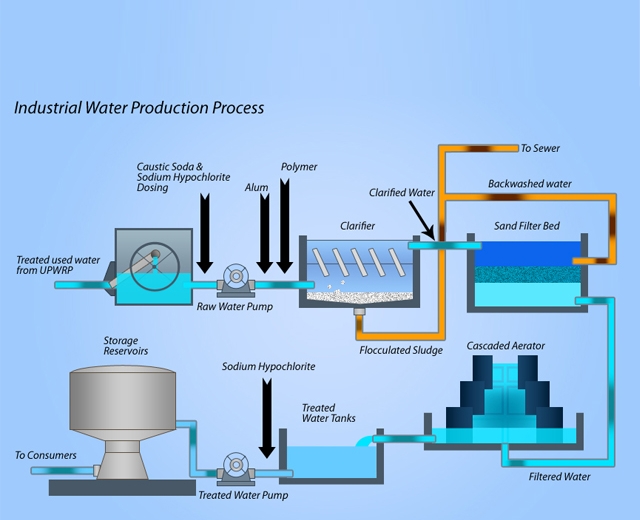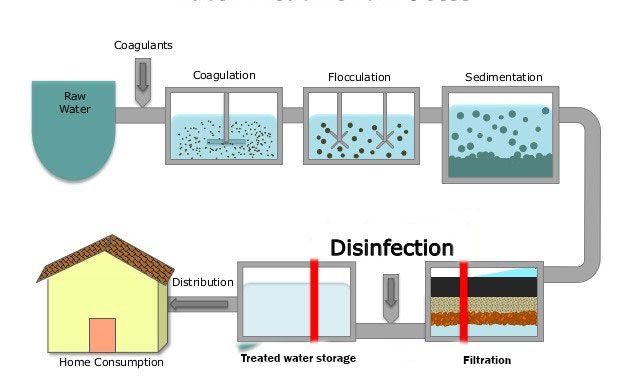Trustworthy and Economical Water Purification System Solutions
Trustworthy and Economical Water Purification System Solutions
Blog Article
Why a Water Filtration System Is Essential for Clean, Safe Water
Accessibility to clean, risk-free water is an essential human right and a foundation of public wellness. However, the visibility of dangerous pollutants such as virus, hefty steels, and chemical toxins in our water system elevates major worries regarding health and health. A water filtration system stands as an important remedy to mitigate these risks, making certain that communities and individuals can access risk-free alcohol consumption water. Comprehending the complexities of these systems and their different techniques is crucial, particularly as we take into consideration the ramifications for wellness results and environmental sustainability in our day-to-days live.
Relevance of Clean Water
Accessibility to tidy water is an essential requirement for human health and wellness and wellness. It is vital for sustaining life, supporting hygiene, and preserving overall public health and wellness. Water Purification System. The availability of secure drinking water substantially reduces the risk of waterborne conditions, which present a significant risk to neighborhoods worldwide. Infected water can result in severe health problems, including intestinal health problems, cholera, and dysentery, specifically in susceptible populations such as youngsters and the senior.
Additionally, tidy water is critical for sanitation and hygiene practices, which are essential in protecting against the spread of infectious conditions. Appropriate water system supports correct hygiene facilities, promoting a much healthier environment. Furthermore, access to secure water affects socioeconomic factors, as it allows communities to involve in agricultural and commercial tasks, ultimately adding to economic development.
In several areas, the absence of clean water exacerbates destitution and inequality, further impeding progression towards sustainable growth objectives. Guaranteeing access to tidy water is not only a public wellness critical however likewise a cornerstone for social equity and financial growth. Initiatives to boost water quality and facilities have significant advantages, fostering much healthier neighborhoods and boosting lifestyle.

Usual Contaminants in Water
Making certain the accessibility of clean water is undermined by different pollutants that can jeopardize its security and quality. The presence of pathogens, such as infections, parasites, and germs, postures substantial wellness threats, particularly in locations lacking sufficient sanitation. These microbes can bring about waterborne illness, resulting in serious ailment or also death.
Chemical contaminants likewise offer an essential concern. Heavy metals, including arsenic, mercury, and lead, typically enter water supplies via industrial discharges or rusty plumbing. These substances can gather in the body in time, causing long-lasting health concerns such as neurological damages and developing conditions.
In addition, agricultural overflow presents chemicals and fertilizers right into water systems, which can disrupt communities and negatively influence human health and wellness. Nitrates, commonly found in plant foods, can create major problems like methemoglobinemia, particularly in infants.
Advantages of Water Filtration Equipments
Acknowledging the essential demand for risk-free drinking water, water purification systems use a myriad of benefits that improve public health and wellness and ecological sustainability. Mostly, these systems effectively get rid of dangerous pollutants, consisting of bacteria, infections, hefty steels, and chemicals, guaranteeing that the water taken in is devoid Home Page of pathogens and look at this web-site contaminants. This reduction in impurities significantly decreases the danger of waterborne conditions, promoting total community health and wellness.
In enhancement to wellness advantages, water purification systems add to environmental sustainability by lowering dependence on mineral water, which typically generates extreme plastic waste. By making use of a purification system, families can reduce their carbon impact and add to a much more sustainable ecological community. These systems can improve the preference and odor of water, making it much more palatable for everyday usage.

Different Kinds Of Filtration Techniques

One common method is reverse osmosis, which makes use of a semi-permeable membrane to different water from liquified impurities and solids. This process effectively minimizes impurities, including hefty steels and chemicals. An additional extensively utilized strategy is ultraviolet (UV) sanitation, which employs UV light to counteract bacteria and viruses, providing them harmless without the usage of chemicals.
Triggered carbon purification is an additional popular method, utilizing carbon to adsorb organic compounds, chlorine, and unpleasant odors, boosting preference and odor quality. click resources Purification, a process that involves boiling water and condensing the vapor, properly eliminates minerals and impurities yet might call for more power contrasted to various other approaches.
Ion exchange is usually utilized to soften water by replacing calcium and magnesium ions with sodium or potassium ions. Each technique has its constraints and benefits, making it essential to understand their performances and effectiveness in resolving specific water quality problems - Water Purification System. Inevitably, choosing the suitable purification method is crucial for guaranteeing tidy and risk-free drinking water
Picking the Right System
Picking a proper water purification system calls for careful consideration of various aspects, consisting of the specific contaminants existing in the water system, the quantity of water needed, and the preferred purification method. Initially, it is essential to conduct a water top quality test to determine impurities such as microorganisms, hefty steels, or chemical contaminants. This information will certainly guide you in choosing a system that successfully targets those particular pollutants.
Next, examine your household's day-to-day water consumption to identify the system's capability. Systems are readily available in different sizes, from point-of-use filters for drinking water to whole-house systems that cleanse all water entering your home.
In addition, consider the purification technique that ideal fits your needs. Reverse osmosis is highly effective for eliminating a vast range of contaminants, while UV filtration is superb for eliminating microbes.
Verdict
To conclude, the implementation of water purification systems is crucial for guaranteeing access to clean and safe water. These systems properly get rid of unsafe pollutants, thus reducing the threat of waterborne illness and improving public health and wellness. They contribute to environmental sustainability by lessening reliance on bottled water. By understanding the value of clean water and the benefits of numerous purification methods, communities can make enlightened decisions to safeguard their wellness and promote socioeconomic stability.
Acknowledging the crucial requirement for risk-free alcohol consumption water, water purification systems supply a myriad of advantages that improve public health and wellness and environmental sustainability.In addition to wellness benefits, water filtration systems add to ecological sustainability by decreasing dependence on bottled water, which often produces excessive plastic waste. Ultimately, the adoption of water filtration systems is an aggressive action toward making certain tidy, safe water for future generations while securing public health and the environment.
Selecting a suitable water purification system requires mindful consideration of various elements, consisting of the specific contaminants existing in the water supply, the volume of water needed, and the desired purification method.In final thought, the execution of water purification systems is crucial for making sure accessibility to clean and risk-free water.
Report this page